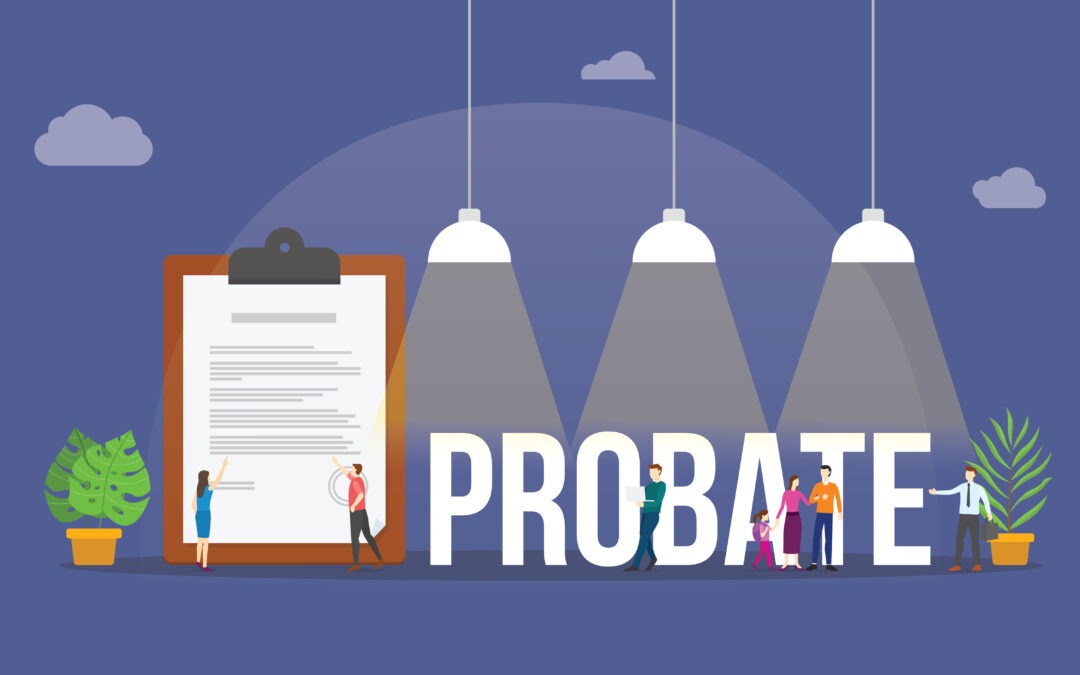3 Reasons to Avoid Probate
When you die, under probate it’s likely your heirs will have to sign documents in order to receive their inheritance. This can happen if you own property in your name only and if you haven’t expressly designated a beneficiary. Some of those properties might include real estate, a house, a car, a bank account, an investment account, jewelry, antiques, intellectual property, or another type of asset. Although having a will is a basic estate planning tool, it does not avoid probate. In fact, if you have just a will, probate is inevitable. A will informs the probate court of a person’s intentions and desires. However, your heirs must access the probate process to make those wishes legal.
Now you have an idea why probate might be necessary. Let’s take a look at three reasons why you might prefer to avoid probate—if you can:
- CREATES A PUBLIC RECORD.
Almost everything that involves a court process becomes a matter of public record. That includes probate. So all documents that are associated with family and financial information could become available through the probate court. This would allow access to anyone who wants to see them. While such access might not include bank account and social security numbers, it would include the value of your accounts and property, creditor claims, the identities of your beneficiaries, contact information for your loved ones, and even disputes regarding your assets. All of this could be made public if you have only a will. For that reason, when possible, most people would prefer that information to be kept private. Unlikely where probate is involved.
- COST.
The cost of probate can run into thousands of dollars, even for a small estate. What drives up the cost are court costs, attorney’s fees, executor fees, and other related expenses. And if family disputes and creditor claims arise during the process, then the cost of probate can become prohibitive for some parties. Shouldn’t your assets be going into the hands of your loved ones? Well, if probate is involved, a significant portion of your money could go to the courts and legal fees instead.
Undoubtedly, an estate plan that avoids probate also has its costs, especially on the front end. Sometimes you pay a little more to set up an estate plan that avoids probate. A phrase often attributed to Ben Franklin comes to mind: “An ounce of prevention is worth a pound of cure.” Liken that to the preventative measure of establishing a trust-based estate plan. Like the “ounce of prevention,” costs you incur to put a plan in place are more easily controlled than the indefinite expenses your heirs will incur in the future. With proper planning, you can reduce the risk of expensive disputes and possibly eliminate extraneous costs. NO probate equals NO probate filing fees or court costs.
- DURATION.
Rarely is probate a quick process. The time it takes to shepherd a matter through probate depends on the size of the estate, its value, the complexity of the deceased person’s accounts and property. If the property is located in different states and countries, that adds another layer of unraveling to be done. A version of the probate process must be repeated in every state where the property is located. It is not unusual for probates to take upward of six months to a year or more, even for seemingly simple estate. When it comes to the law nothing is simple, because people are involved. This delay means your beneficiaries will have a hard time accessing the assets you’ve intended for them. This delay can be especially difficult if your loved one is in need of money. A trust-based estate plan offers a simpler and faster administration process. Avoiding probate can make the distribution of funds an easier process.

Francine D. Ward
Attorney-At-Law, Author, Speaker
Follow Francine:
Don’t miss Francine’s Latest Blogs:
- Sweepstakes ScamsSweepstakes Scams. The Federal Trade Commission (FTC) has settled with several operators of a sweepstakes scam. The scam bilked consumers out of millions of dollars. Included in the settlement agreement,… Read more: Sweepstakes Scams
- Incapacity PlanningIncapacity Planning. Incapacity is an unexpected wrinkle in your estate plan. I am a planner. I make plans, I like making plans, and sometimes my plans go awry. Despite any… Read more: Incapacity Planning
- Publishing contractsPublishing contracts The publishing contract is an agreement that defines the relationship between an author and her publisher. Publishing contracts typically contain elements that speak to territory, rights, ownership, financial… Read more: Publishing contracts
- What is a Habit?As we enter springtime, you may feel far away from your New Year’s resolution. That may be because of the success rate of NYE resolutions. In fact, January 17 is… Read more: What is a Habit?
- Common Contract MistakeCommon Contract Mistake #1. Not Having Written Agreements with EVERYONE You Do Business With. Common contract mistake. Without question, the most common contract mistake is not having the terms of… Read more: Common Contract Mistake











